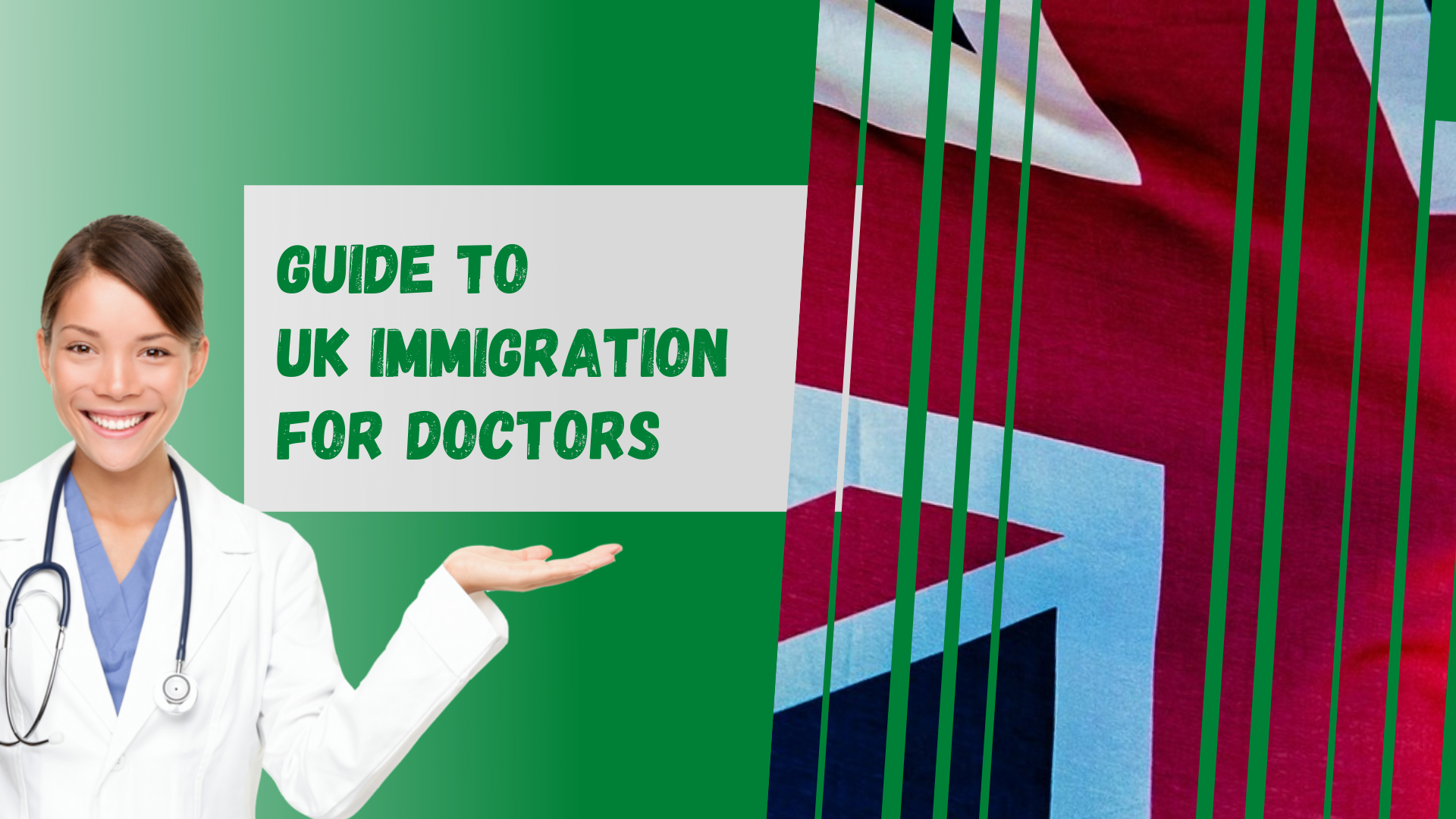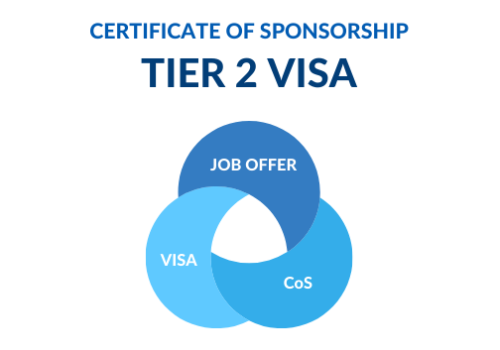Making the choice to move to a different nation is never a simple one. You really need to give a lot of thought to all of these different aspects.
When it comes to obtaining a visa, a thorough and intricate procedure makes for a substantially more challenging process. The reality is that immigration legislation in the UK is complex and consists of several different layers.
In addition to this, it is always evolving, which means that you need to verify that the information you have is accurate and that it has been brought up to date.
If you are a medical professional and are thinking of relocating to the United Kingdom, there are a few important things you should think about first. With this streamlined guide, we will focus on the most crucial aspects in an effort to make the journey more manageable for you.
Applying for a Visa
The first thing you should do before applying for a visa is to make sure that you have everything that is required for the application itself. This should be done as soon as possible.
Obtaining a certificate of sponsorship should be the second item on your to-do list in the event that you want to submit an application for a Tier 2 visa.
What exactly does it mean to get a Certificate of Sponsorship (CoS)? This is information that should be provided to you by your employer. It is anticipated that your potential employer would submit a CoS request using the online Sponsor Management System account that they have.
It is essential to submit a visa application within the time frame specified by the Certificate of Sponsorship – failing to do so may result in a delay in the execution of your plans.
In the same vein, you shouldn’t submit your application more than three days before the day on which you are scheduled to begin working in the United Kingdom.
Working in the UK on the Tier 2 Visa
You should submit an application for a Tier 2 visa if you are a physician and have plans to work in the United Kingdom in the not-too-distant future.
This kind of visa is issued by the United Kingdom and allows businesses to recruit employees from countries outside of the UK and the European Economic Area (EEA) to fill jobs that are ineligible for candidates with UK or EEA citizenship.
On a separate point, if you are a doctor who is not from the UK or the EU and you wish to practice medicine in the UK, you will need to apply for a Tier 2 Visa. You are required to have a sponsor before submitting an application; in addition, as was previously said, you are required to provide a certificate of sponsorship.
It is important to note that in addition to the ongoing changes that are made to the visa criteria, a substantial new adjustment has been included.
We are referring to the fact that all physicians, regardless of their level, have the opportunity to submit an application for a visa to work in the United Kingdom; the only need is to have appropriate sponsorship.
The most important difference is that the potential employer must refrain from advertising the position in advance and must adhere to a number of stringent requirements.
In the following paragraphs, we will have a more in-depth discussion regarding these changes and how they impact the immigration system.
UK Shortage Occupation List (SOL)
The UK government recently updated its shortage occupation list, which is a list of jobs where there aren’t enough qualified workers in the UK.
The changes make it easier for employers to hire workers from outside the UK for certain jobs, including medical professionals like doctors, nurses, and therapists. The list was updated to address the changing needs of the UK economy and to make it easier for employers to hire workers from outside the UK for jobs that are in demand.
By being on the shortage occupation list, these jobs are exempt from some of the requirements and paperwork that would otherwise be necessary for an employer to sponsor a non-EEA worker.
The UK government maintains two main lists related to immigration:
Shortage Occupation List (SOL)
This is a list of jobs where there is a shortage of qualified workers in the UK. Employers who want to hire workers from outside the European Economic Area (EEA) for these jobs will face fewer restrictions and requirements than for jobs not on the list.
The SOL is regularly reviewed and updated by the Migration Advisory Committee (MAC), an independent advisory body.
Tier 2 Sponsorship List
This is a list of eligible jobs that employers can sponsor non-EEA workers to fill. In order to sponsor a non-EEA worker for a job in the UK, the employer must have a Tier 2 Sponsorship License and the job must be on the Tier 2 Sponsorship List.
The two lists are related, but not exactly the same. Jobs on the SOL are exempt from some of the requirements and paperwork that would otherwise be necessary for an employer to sponsor a non-EEA worker for a job on the Tier 2 Sponsorship List.
However, not all jobs on the Tier 2 Sponsorship List are on the SOL, and employers will still need to meet the full set of requirements for those jobs.
Advantages of the Roles Included on the Shortage Occupation List
No need to conduct Resident Labour Market Test (RLMT)
The Resident Labour Market Test (RLMT) was previously required for employers who wanted to hire workers from outside the European Economic Area (EEA) for jobs in the UK.
This was a time-consuming and complicated process that required employers to advertise the job in various places and prove that they couldn’t find a suitable UK resident to fill the position. This requirement was waived for jobs on the Shortage Occupation List.
This means that employers can now directly hire workers from outside the EEA for jobs on the list without having to go through the RLMT process. This makes the visa application process faster and easier for both the employer and the foreign worker.
No Minimum Income Threshold for Settlement
The UK government previously required foreign workers to meet a minimum income threshold in order to be eligible to settle permanently in the UK.
For jobs on the Shortage Occupation List, there is no such requirement. This means that workers in these roles can earn less than workers in non-shortage roles and still be eligible for settlement in the UK.
Lower Visa Fees
Visa fees for foreign workers are notably lower for jobs on the Shortage Occupation List. This reduces the financial burden on both the employer and the foreign worker, making the process of bringing in skilled workers from outside the UK more affordable and accessible.
Streamlined Visa Application Process
As a result of the above advantages, the visa application process is generally simpler and more streamlined for jobs on the Shortage Occupation List.
Employers can hire skilled foreign workers without having to go through the extra steps of conducting an RLMT or meeting minimum income thresholds, which can be time-consuming and complicated.
This helps ensure that skilled workers can quickly and easily join the UK workforce where they are needed.
Shortage of Skilled Workers Addressed
Perhaps the biggest advantage of jobs being added to the Shortage Occupation List is that it helps address the shortage of skilled workers in certain industries in the UK. By making it easier for employers to bring in skilled foreign workers to fill these roles, the UK can address the skills gap and continue to grow economically.
Changes in Immigration System
The time in which we live is one in which change cannot be avoided. We can see it everywhere, beginning with the way we live our lives and the tasks we do. As a result, it was to be expected and quite natural that the immigration system in the UK would be subject to change as well.
Change is required in order to meet the requirements of the people and the nation; otherwise, the system is no longer serving the people of the country. Change is essential in order to address the needs of the people and the country.
The modifications that were made to the SOL will almost certainly result in adjustments being made to the immigration system in the UK.
In addition, the new organizational framework of the system allows keen medical professionals who want to work in the UK to make use of its benefits. That is to say, capabilities and previous experience will be the primary focus of attention.
While striving to fill critical positions in the healthcare system, the relevance of a candidate’s talents will become the primary focus, rather than the importance of the candidate’s nationality.
Depending on how things develop as a result of the adoption of the new system, MAC may come up with ideas on how to improve it when the new system begins to take effect. These suggestions will rely on the state of affairs.
To that purpose, opportunities for physicians and healthcare practitioners do not have to go through the normal advertising channels before they may be offered to an immigrant who is not from the EEA.
Take Away
If you are a company and you have identified the ideal individual for a post in the healthcare sector, then you are able to recruit a non-EEA immigrant without the need to go through such a convoluted procedure since you are exempt from it.
But, you must be able to commit at least 30 hours a week to the role. In addition to that, the remuneration must comply with the requirements outlined in the legislation. The employment list is relevant across the whole of the UK (and this would include Scotland as well).
Also Read: Complete Guide to 6145 Care Workers and Home Carers Visa
 +448000472626
+448000472626 info@hirebrit.co.uk
info@hirebrit.co.uk www.hirebrit.co.uk
www.hirebrit.co.uk




